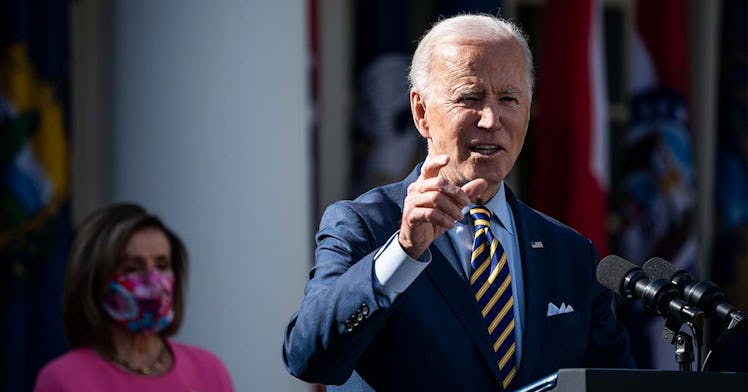President Biden Wants to Raise Federal Taxes for the First Time Since 1993
Raising taxes on the rich to pay for infrastructure, climate, and anti-poverty programs is Biden's next priority. Here's what we know so far.

Fresh off the passage of the $1.9 trillion American Rescue Plan Act, Joe Biden is setting his sights on another signature piece of legislation, one that is expected to be even bigger, because of its power to make all other big-spending items possible. It will fund infrastructure, climate, and anti-poverty initiatives, but even more significant is how it will do so: tax increases.
If passed, these tax increases would be the first passed at the federal level since 1993. Where the aforementioned COVID-19 relief bill was paid for entirely by, in essence, printing new money, the second major piece of legislation of the Biden administration will be funded at least partially by tax increases.
We don’t have a draft piece of legislation or even a statement outlining the administration’s vision for the plan, which likely hasn’t fully been decided just yet, but Bloomberg reports that the following tax increases are being considered.
- Raising the corporate tax rate from 21 percent to 28 percent
- Reducing the tax advantages of using pass-through businesses like limited liability corporations, a common tactic employed by high earners
- Increasing the income tax on individuals with more than $400,000 in income
- Expanding the estate tax
- Raising the capital gains tax rate for those with seven-figure incomes
A couple of different rationales for these changes are emerging. Treasury Secretary Janet Yellen has indicated that at least part of the new projects is funded with already issued money “in order not to raise long-term deficits.”
In addition to funding policy priorities, the tax increases are a reflection of a policy priority in and of themselves: making the tax code fairer by asking those with means to contribute more to the common good. It’s in line with much of the populist rhetoric of more progressive party members, even if the ideas under discussion in the White House aren’t as dramatic as the wealth tax proposed by Senator Elizabeth Warren, or the financial transaction tax-supported by House Financial Services Committee chairwoman Maxine Waters.
The bill’s prospects for becoming law are unclear. Democrats likely couldn’t use budget reconciliation, the process they implemented to pass the American Rescue Plan, to pass this piece of legislation. And while the version of the law that’s introduced in the House will likely pass without much consternation, when it arrives in the Senate things get tricky.
Democrats’ options will be to find ten Republican senators who will support it (unlikely, even if major concessions are made) or to eliminate or heavily modify the rules of the filibuster so that a unified Democratic caucus, with Vice President Kamala Harris as the tie-breaking vote, can pass the bill with a simple majority.
So the substance of and prospects for Biden’s next major initiative is murky, but it seems clear that he wants to build off the success of the American Rescue Act with another law that could make a dent in serious problems facing the country, make the tax system fairer, and change how the Senate does business.